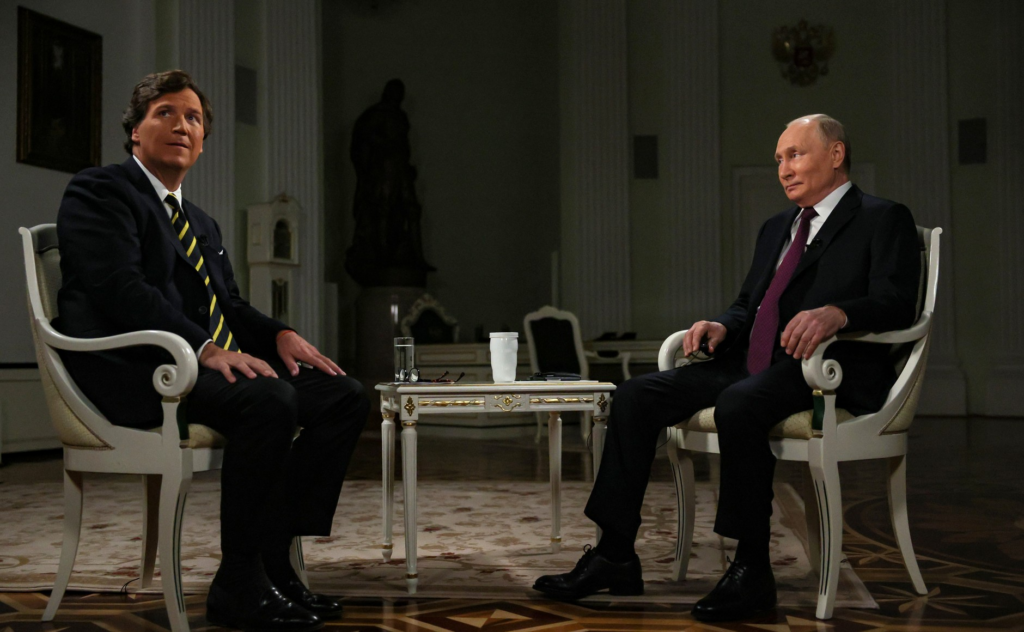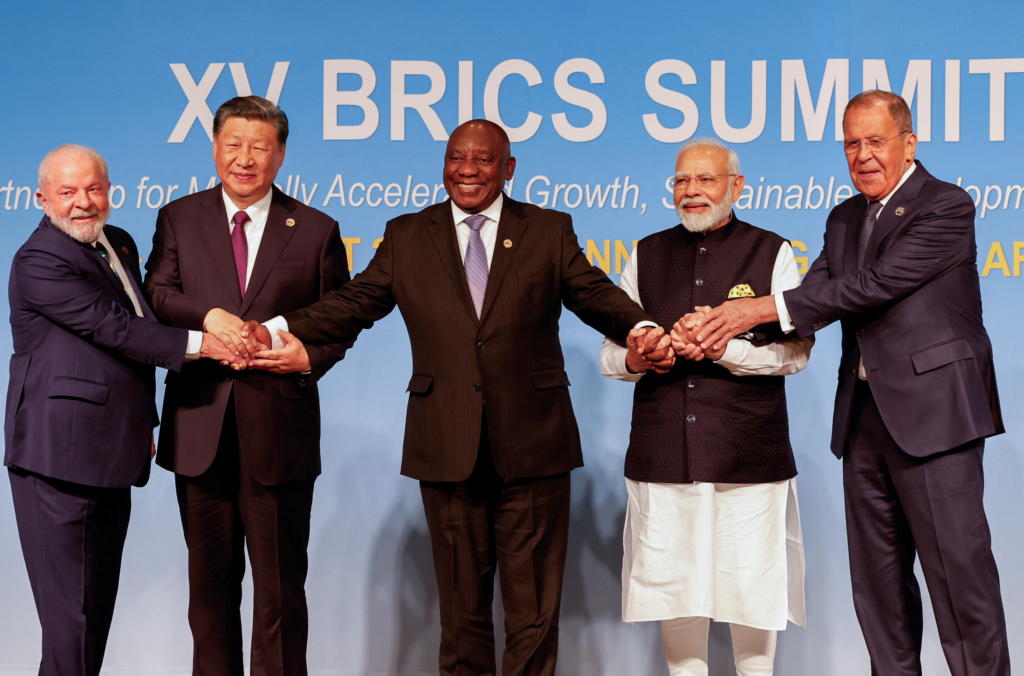By now, Russian President Vladimir Putin’s interview with American conservative political commentator Tucker Carlson has reached over eighteen million views on YouTube. The explainer pieces have been numerous. Nonetheless, here at Common Sense we feel that missing in the widespread coverage of the interview has been an in-depth look at the Russian leader’s vision for the future. Just how does Putin envision developments unfolding in the international arena?
“The world should be a single whole…That is the only scenario where the world could be stable, sustainable, and predictable”. These are not the words one might expect to see attributed to a certain Vladimir Putin, and yet they are indeed his. This remark was made during the by-now infamous interview with American conservative political commentator Tucker Carlson.
Below, we seek to answer, what really lies behind the strongman persona? Is Vladimir Putin an idealist?

Understanding the origins of the Ukraine War
To understand Vladimir Putin’s vision for the future, it is integral we first turn to the past. The topic which dominated much of the interview was of course the ongoing Russo-Ukraine war. Putin’s justification for his war weaved a lengthy narrative consisting of a centuries old claim to sovereignty over parts of Eastern Ukraine, the collapse of the Soviet Union, and the subsequent failure of the West to integrate Russia into a new international security apparatus.
Putin’s key argument was that the Russian leadership had seemingly misunderstood the notion that when the Soviet Union ceased to exist, it would immediately become a new entity free of past charges, and thus with ideological dividing lines no longer an issue, Russia would be welcomed by the West with open arms. As we now know, this wasn’t the case.
On the contrary, NATO expanded, five times, by Putin’s count, whilst Russia protested. And so began a series of unfortunate events. From CIA backed coup attempts to accusations of industrial sabotage, and international financial blackmail. The thread connecting all of these events was the notion that the United States had been setting the rules by which everyone except themselves must play. And so we arrive at our present predicament.
The world is being divided into two competing blocs
When prompted by Tucker Carlson, if the world had broken into two competing hemispheres, Putin’s response was an unflinching yes, yet it needn’t be this way.
Putin argued that the world was undergoing a series of historical shifts in its balance of powers. Would-be superpowers, for so long, condemned to the side-lines of international development, were now beginning to reap the inevitable economic growth which follows such rapid population growth as seen in China, India, Indonesia, and the like.

Putin cited the example of the BRICS group of nations, responsible for just 16% of the world’s economic output in 1992, today exceeding even that of the G7 group of advanced economies (32% vs 30% respectively). U.S. attempts to repel such unstoppable forces had already backfired. Its weaponization of the dollar had only resulted in countries de-dollarizing more rapidly.
Bogeyman stories about the rise of China were dismissed assuredly, with Putin describing Chinese leader Xi Jinping as a friend, and likening China to a neighbour or close relative. Putin’s message to the West was clear. It’s not a matter of if, but how the world will change, ‘painfully and quickly, or gently and gradually?’
How is the world going to change?
What fate lies ahead for us then, in the West?
Well, according to Mr Putin, that depends on our leaders. Mr Putin argued in today’s changing dynamics, we need forward thinking and adaptable politics. Political leadership matters, “if we want to ensure the future, then we need to change our approach to what is changing.”
By Putin’s accounts, this means the West first adapting to, what he described, as the facts on the ground in Ukraine. Russia could not and would not be defeated. All stakeholders – Russia, Ukraine, and the West – knew this. The only matter up for debate was how to deliver an agreement that would both bring an end to the war and allow the West to save face.
As for the United States, it’s dominance as the sole superpower of the world was up, the sooner it accepted that, the sooner it could focus on ways to offset its inevitable demise using its still considerable economic advantages.
The future is, and ought to be, according to Vladimir Putin, multipolar. This means a world with multiple power centres, rather than one; a world which allows for the co-existence of different sets of values; and for these values to be the guiding principles which shape international rules and regulations.
These were choice words by Mr Putin throughout. By design, they form a clear binary between the existing rules-based international order espoused by the West, and the emerging multipolar world. Which fate lies ahead, nobody really knows.


